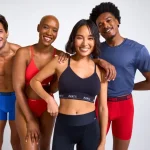Amazon moved further into the sporting goods world this week with Nike reportedly deciding to start selling directly on Amazon and the Sports & Fitness Industry Association (SFIA) appointing Amazon to its board of directors.
The appointment of Fouzan Mansuri, director and category leader for Sports & Fitness at Amazon, to SFIA’s board had no relation to the news about Nike. But both reflect the industry’s challenges adapting to rapid shift to online buying and Amazon’s role as its primary driver.
In an interview with SGB, Tom Cove, SFIA’s president and CEO, said discussions regarding adding Amazon to its board had been going on for a while but reached a greater urgency over the last year given the spate of store closings.
“Given the unprecedented disruption and the departure of so many retail doors, there’s no question that those who remain and those who are entering are that much more important,” stated Cove. “And I think most of our SFIA member companies are well aware that there’s a great need to be creative and responsive to what the consumer wants with the departure of so many retailers. Frankly, we want to support every one of them.”
Mansuri joined the board on an interim basis. He will be included in the formal slate for election to a full three-year term during the annual SFIA election in fall 2017.
Cove said the industry has been undergoing a “crazy time” since coming out of the Great Recession and is still trying to “figure out the new normal.” Beyond the attention paid to online selling, led by Amazon, the industry is facing a vast change in shopper buying habits. Said Cove, “People over the last several years are just not buying as much stuff, whether it’s golf clubs or high-end running shoes. And there’s been changes in the way customers are deciding what to purchase, deciding how to purchase, how many times, and where to purchase.”
Having a voice from Amazon on the board is expected to help the industry understand those broader shifts.
“Amazon is talking to a lot of customers, connecting with a lot of customers, servicing a lot of customers, and are well known for their ability to hear what their customers are saying,” adds Cove. “The board saw that as extremely valuable.”
Obviously, having Amazon’s input into the board will also help brands understand how to work with Amazon. According to data released at the Internet Retailers Conference and Exhibition (IRCE) that took place in Chicago in early June, 43 percent of online sales come from the Amazon platform, 80 percent of online’s overall growth is driven by Amazon, and 64 percent of U.S. households are Amazon Prime members.
“Our board, which at this point is dominated by vendors, all have a deep commitment to traditional retailers but Amazon is going to be a major player in our industry for a long time,” said Cove. “And there’ s real interest in supporting all channels for the long-term health and vitality of our industry.”
The appointment of Mansuri came a day after it was widely reported that Nike was close to reaching a deal to sell direct on Amazon for the first time. As part of joining its registry, Nike will gain some level of control over its messaging on the site, access to consumer purchasing data and be in a position to better crack down on unauthorized sellers on Amazon’s marketplace.
While brands have been somewhat cautious about selling on Amazon in part due to how it may impact traditional retail, Cove said the massive disruption over the last year across retail is forcing retailers to better balance offline and online opportunities.
“I think like any new channel, it’s evolving and people’s opinions, expectations and mandates are changing,” said Cove. “People in the industry and people at the brand level are figuring out the e-com channel, figuring out the Amazon-specific relations, and even figuring out their own e-commerce/direct-to-consumer initiatives while also looking to maintain relationships with traditional retailers. It’s all part of the mix.”
Cove noted that industry has continually been forced to adapt to upheavals over the years and online is just one of them. For SFIA, a major transformation in its mission came after it wound down the Super Show, once the industry’s signature event. In 2012, the organization changed its name after 107 years from SGMA (Sporting Goods Manufacturers Association) to SFIA to more directly include many of its member’s focus on fitness and active lifestyle products as well as the organization’s embrace of the larger community of importers, retailers and other partners in the space in addition to manufacturers.
The board’s makeup also has grown to reflect the growing importance of international trade and intellectual property to its members, as well as other transformative changes that have also recast the industry, including many vendors now having ample retail operations, both stores and e-commerce, as well as major retailer’s counter move to develop expansive private label assortments.
Said Cove, “We have to be nimble, we have to be relevant, and we have to recognize how the industry is changing and be in a position to reflect those changes and provide value as those changes affect the way everybody does their business.”
As far as timing, Cove said discussions exploring greater involvement of Amazon and SFIA have been going on for some time. These include SFIA reaching out to Amazon for some information as well as Amazon reaching out to the organization a few times in the past regarding information on how to broaden their reach and awareness in the industry.
They reached another level last year after SFIA featured Mansuri and Amazon’s sports marketing lead at the time, Ryan Elvers, in a wide-ranging keynote fireside chat at its Industry Leaders Summit (ILS) last September in Denver.
The two openly discussed Amazon’s view of the sports and fitness industry, growth opportunities and key trends and threats likely to affect the business at the session. A number of Amazon representatives in the category stayed around for two-day conference and held private conversations with attending members that both sides found highly productive, according to Cove.
Amazon became a SFIA member this year and ongoing discussions on how Amazon could broaden their reach and improve their access to brands within the industry led to the board appointment.
The board had to also address what needs Amazon had in joining the board and what SFIA could deliver back to them. Although SFIA has had execs from The Sports Authority, Sears, Gart, Galyan’s and Modell’s on its board in the past, Amazon will represent its only board member from the retail community at present.
The board includes execs from Riddell, PING Golf, Under Armour, Asics America, Body Solid, Technogym, 2XU, Empower Fitness, the NHL, Johnson Nike, Health Tech, New Balance, Adidas America, Bite Tech, Brooks Running and Rawlings.
Amazon may also contribute to SFIA’s mission of improving sports participation. Earlier this year, Amazon signed on as the “official online retailer” for Tough Mudder’s 2017 events season.
“Sports & Fitness is a vibrant category for Amazon, as well as an integral part of connecting with customers,” said Mansuri in a statement. “We’re thrilled to join the SFIA Board of Directors, and are excited about the opportunities Amazon and SFIA will have in working together.”
Photo courtesy Amazon
















